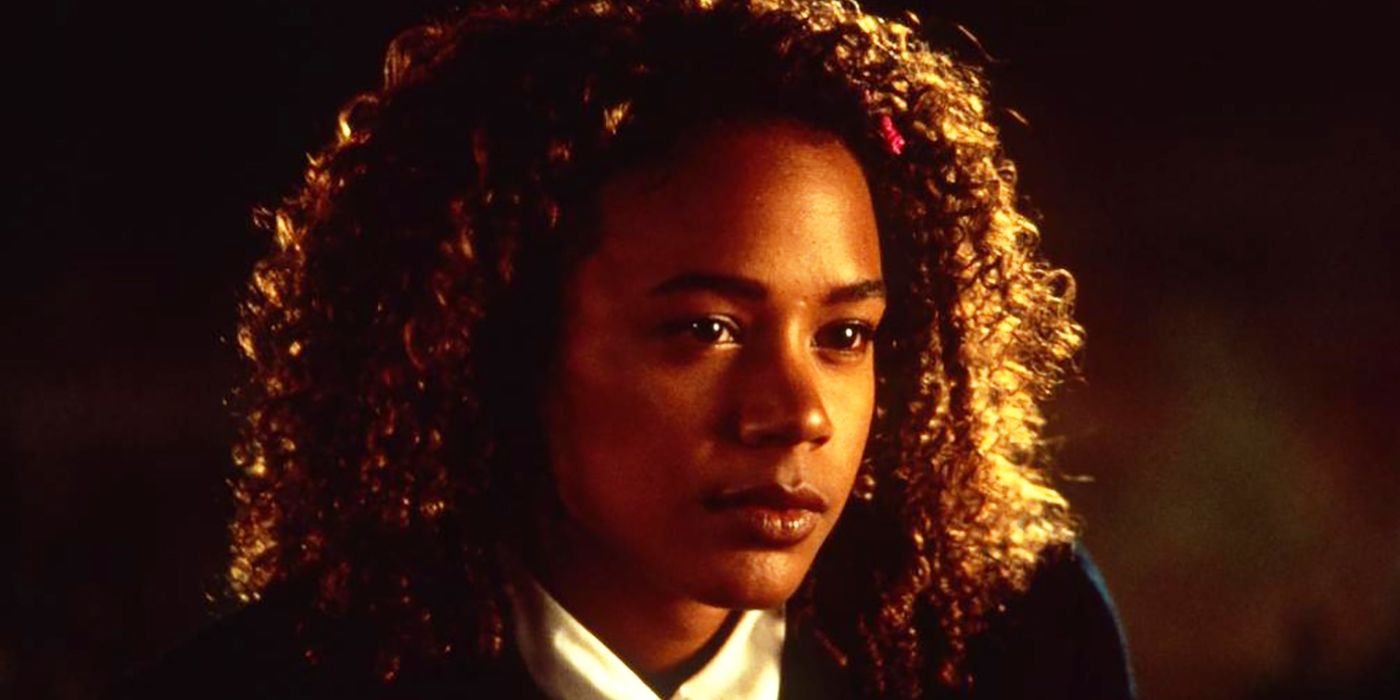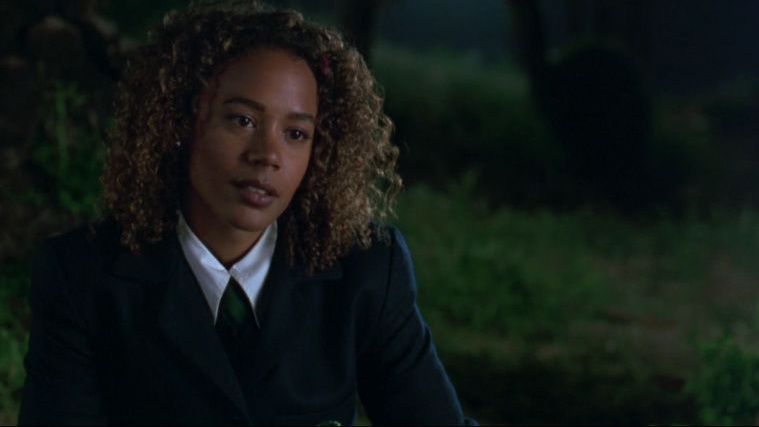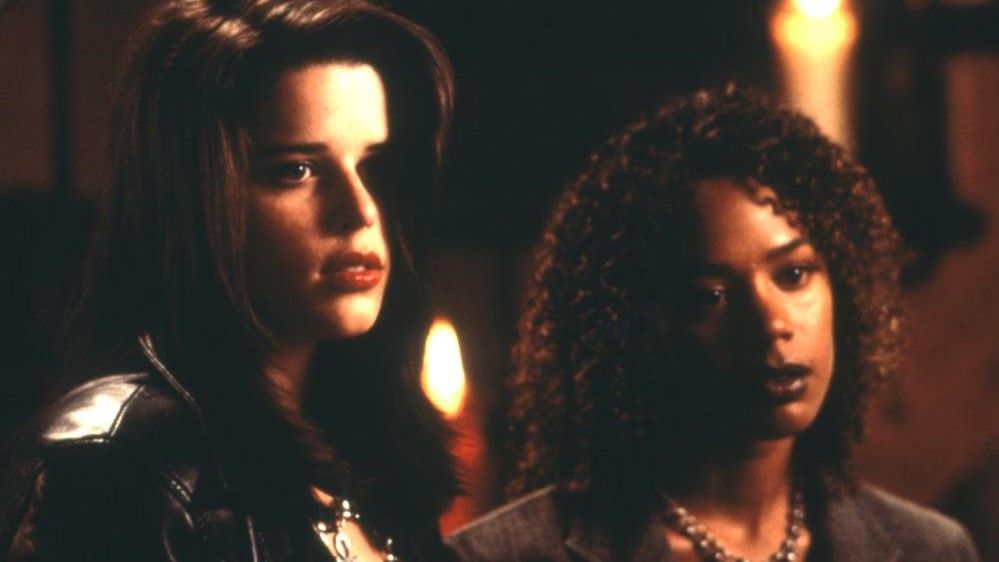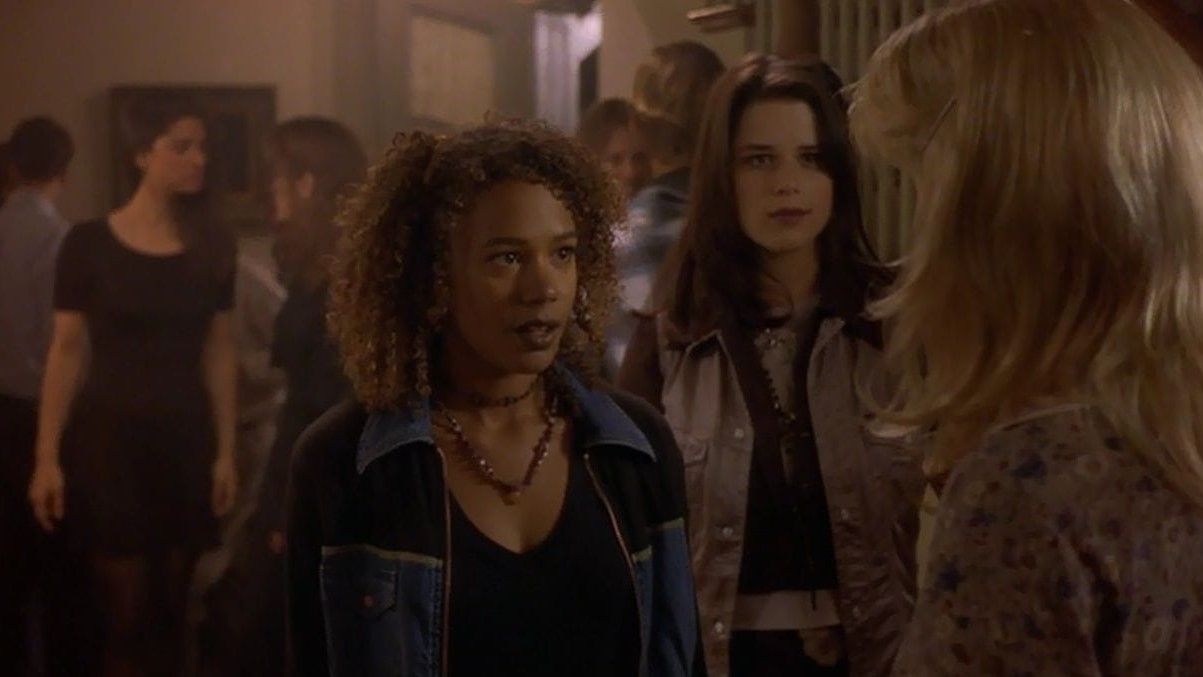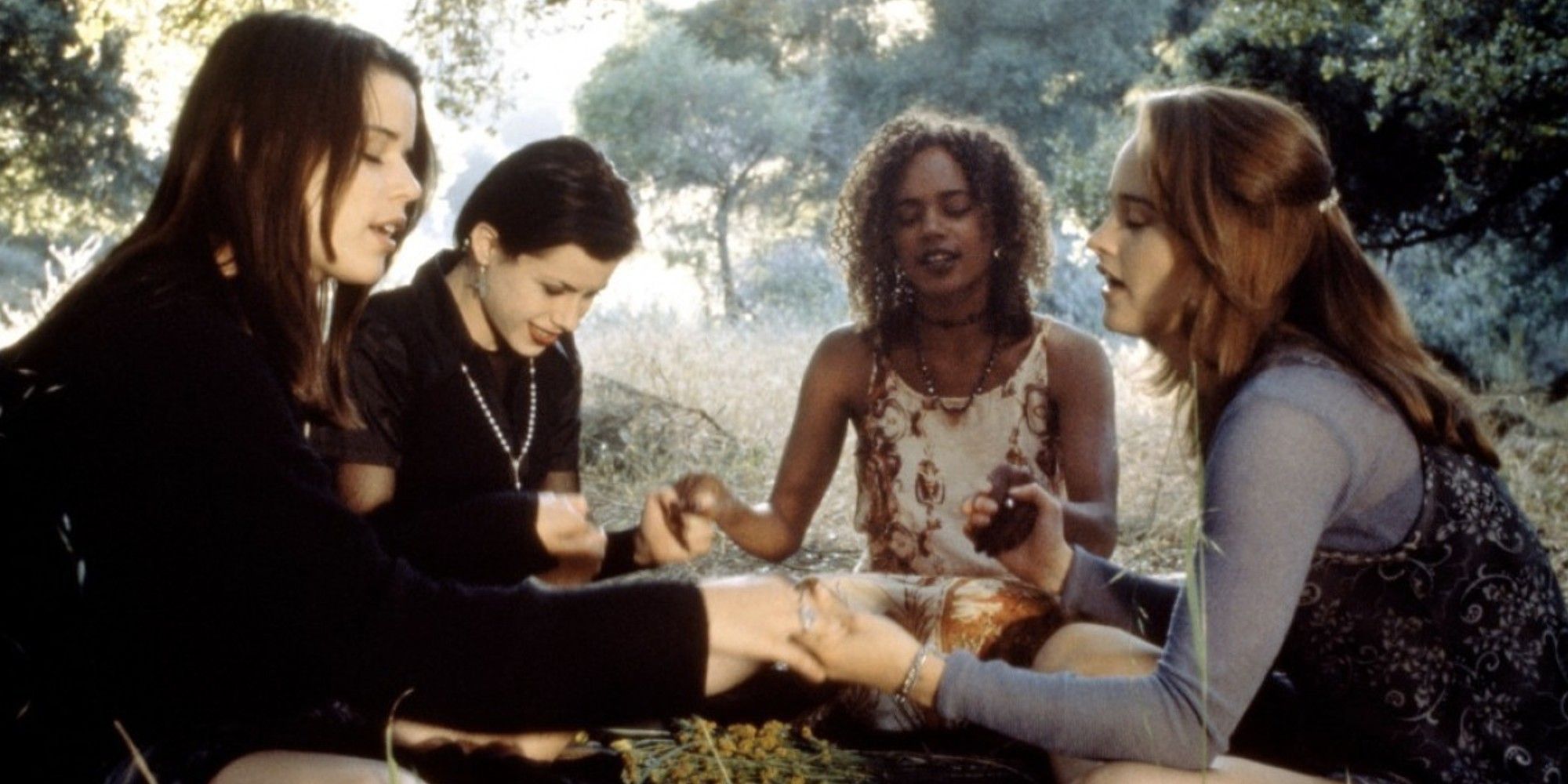A cult classic and horror favorite, The Craft remains a legendary work of witchy cinema to this day. Who could forget the hypnotic powers of Nancy Downs (Fairuza Balk), the natural gifts of Sarah Bailey (Robin Tunney), or the hundreds of dead sharks washed up on the shore after their summoning ritual? However, there is a missed opportunity in the case of Rochelle (played by Rachel True), the quiet third of the girl’s coven. Rochelle’s character arc has the potential to run deeper than The Craft initially portrays. Despite the fact she ultimately becomes enmeshed in the storylines of Sarah and Nancy, Rochelle's potential as a major character exists strongly throughout the film. By way of her racial identity, narrative conflicts, and connection to witchcraft, Rochelle could have easily been a strong and representative character on The Craft. And, even a worthy rival of Sarah and Nancy.
She's a Black, Witchy Catholic
Rochelle is one of the few students of color attending St. Benedict's Catholic School, if not the only. Because of this, she is blatantly harassed by her schoolmate, Laura Lizzie (Christine Taylor), who makes unspeakable comments about her textured hair and skin. To gain control over her circumstances and reclaim a sense of power, Rochelle turns to witchcraft, and understandably so. While the movie fuels these incidents as part of her interest in the occult, The Craft doesn't quite take the opportunity to emphasize the cultural connection between Catholicism, witchcraft, and Rochelle's racial identity.
As a Black woman and specifically African-American, Rochelle inherits a deep connection to the ways witchcraft and Christianity intersect. When enslaved Africans were forced into the Americas, many continued to follow their traditional spiritual beliefs. However, these systems were deemed immoral by the church, so they hid their practice behind the guise of Christianity. In the case of Catholicism, for example, many traditional African spirits were associated with the Saints. A fusion took place between the two religions, creating a new practice known as Voodoo/Hoodoo, which is often associated with witchcraft. So culturally speaking, The Craft had a chance to cultivate in Rochelle a liberating discovery of not only witchcraft but ancestral magic (quite similar to Sarah's realization her mother was a witch). Imagine the power she could wield as a witch and major character. Ever heard of the Voodoo Queen Marie Laveau? Exactly!
Her Struggles Are More Than Just the High School Experience
Each girl is a misfit in their own right, an outcast in a world that has no idea how to handle their traumas. While Nancy, Sarah, and Bonnie (Neve Campbell) absolutely struggle with very real and harrowing circumstances, Rochelle is both a victim of the system and mindset specifically geared towards her demise. Laura's racist remarks are not solely just the words of a popular, bigoted white girl. They are the echos of a much more sinister, and present evil. While she eventually gets revenge on Laura via a nasty hair hex, this is not simply a revenge spell she casts. It is the act of rebellion against the years of abuse Rochelle — and the centuries of atrocities those who came before her — faced due to the color of their skin. The conflict Rochelle battles within the film goes beyond an ordinary subplot. While racism within the school system is often normalized, it is far from the regular high school experience.
She Shows Significant Character Development
To further emphasize why Rochelle is such a compelling character, take a look at her reaction when she finds Laura balding, scabbing, and sobbing on the locker room floor. It is a pinnacle moment of the film when the girls begin to realize the consequences of their actions. Yes, The Craft ensures that what is put out into the universe is returned three-fold, even if in only guilt. But what's lost in this scene is the recognition of how human this moment is. Despite the vile way Rochelle has been treated by Laura time and time again, she cannot stomach the pain she's caused. Next to Sarah, she is the only one of the girls to ever show true empathy. And yet, The Craft does not utilize this further. Rather, Rochelle descends and quickly becomes one of Nancy's cruel, mindless minions.
She Represents a Powerful Element
When Nancy convinces the girls to perform a summoning rite for the deity Manon, the natural element associated with each character is revealed. Nancy, of course, represents fire: explosive, powerful, and all-consuming. Sarah represents earth, symbolizing an association with Mother Nature and a deeply rooted connection to the elements. It's clear how and why the two primary characters in the film depict the elements they do, and their symbolism is utilized to the fullest. However, the same cannot be said for Rochelle. She represents the element of water, which is essential in the giving and taking of life, spiritual power, and the strength of intuition. Beneath the weight of water, fire is extinguished. Without water, the earth cannot sustain itself. It is a breathtaking symbol of the power Rochelle wields. Additionally, it proves she has all the potential to be a formidable opponent against Nancy and Sarah. Unfortunately, nothing is done with it, despite the importance water holds both culturally and within the film.
In all its glory, The Craft utilizes its characters, their stories, and their suffering to portray the opposition between dark and light. Through each loss that's faced, it becomes clear how important it is to maintain spiritual balance. Nancy and Sarah are the warning of what happens if the balance is disrupted. And Rochelle remains the untapped potential of the film. Without a doubt, she could have been the cohesion between Nancy and Sarah-- the magic that unifies dark and light forces. Better yet, if she'd just been allowed to access the magic of her ancestral history, or even a fraction of her connection to the powers of water, she would have given the girls a run for their money!

